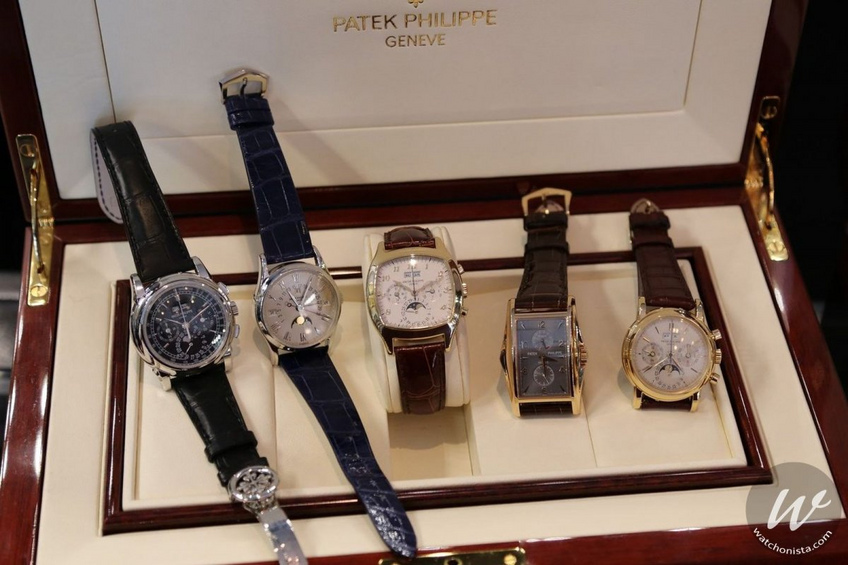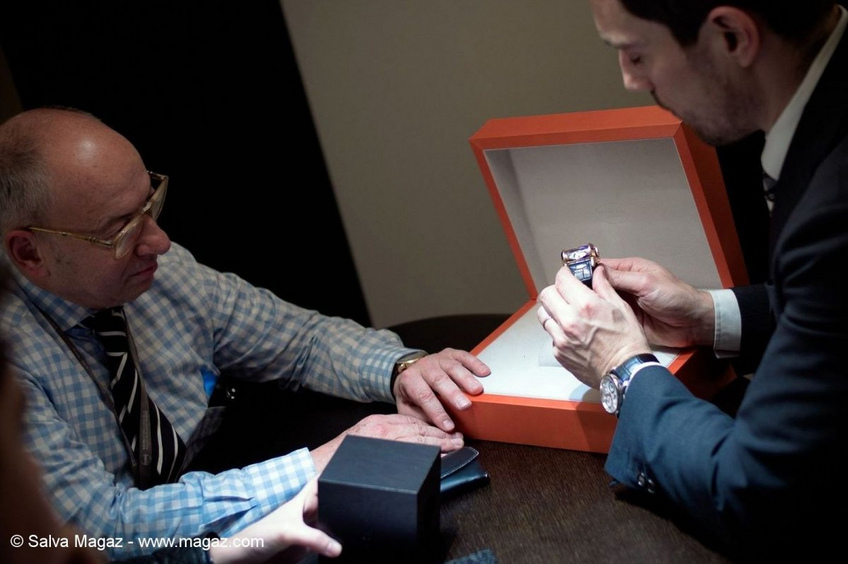

Seduction and dreams: the key to selling
At a time when Swiss timepieces are beautiful and technical, what could retailers use to help clients choose their watches? The answer is simple: a bit of talent and passion!
Watch companies and groups are currently engaged in a fierce battle for the best location for their store. Thus the quality of the staff who bring life to and manage the exquisite stores becomes a key element to victory. To convince an aficionado to buy a watch from a store in any of the five continents, it is henceforth essential to give them a warm welcome, to listen to them attentively, to give them coherent explanations and irrefutable arguments and, above all, to make them feel they are going to be able to become members of some sort of club or even of an ever-fascinating world (that of watchmaking). Indeed, the watch universe encompasses culture, art, technique, passion, laughter, anger, creativity, intelligence, astronomy, material technique and much more. In short, entering this universe opens a kind of door to new knowledge for buyers of timepieces.

More complicated than hairdressing!
Even though one doesn’t need to be a watchmaker to understand watchmaking technique, selling a mechanical watch is much more complicated than hairdressing or scanning several articles at the checkout of hypermarkets. Unfortunately, the message has not yet sunk in for some watch company directors and groups. In fact, they think that because their creations are very appealing, it is enough to exhibit them in the windows of a store located in a prime place in order to attract a crowd of clients. They could not be more wrong as nowadays even the most exquisite or complicated watch cannot be sold without the appropriate explanation.

Brands, however, do argue that they stage their watches. Indeed, they organize (onerous) advertising campaigns each year to introduce their new creations. True: they do spend astronomical sums of money on communication campaigns, sometimes wrongly too, but we will not go into that for now. Sure enough, communicating is a good tool to, above all, convince aficionados to walk into watch stores.
However, even if they may be willing to be convinced, the truth is that entering a store does not necessarily imply the intention to buy, and therefore clients need persuading.

Training is an investment, not an expense
As soon as they step into the store, clients must feel at ease and be given a warm welcome. For that, it is necessary to confer them the feeling that they have just stepped into an outstanding world. Afterwards comes all the selling rhetoric per se. That is, the seller essentially has to first listen to the client, then present the timepieces, explain the technical subtleties and answer the questions of the potential buyer, who is expecting advice. However, sellers must make sure that they are giving advice to avoid making the client feel like they have chosen the watch for them. This requires a certain amount of subtlety and intelligence and the advice given should ultimately help the client make a decision. It is thus no easy task to sell watches.
However, the most difficult task is to find trained personnel in this domain and that is where the problem lies. For decades, watch store owners have done absolutely nothing other than coming to balance the till after a golf match on a Saturday afternoon.

Such an attitude is no longer possible in today’s fiercely competitive market. Fortunately, some leading retailers seem to have understood the stakes and have trained their employees accordingly. There is, however, only a handful of trained professionals, which explains why watchmaking companies have started opening single-brand stores almost everywhere. Certainly, it is to better represent their brand but it also has the hidden rational of compensating for the amateur employees.
This problem makes watchmaking brands react in two ways. On the one hand there are those who mistake investment for spending (a way of thinking that is anchored in the past). In other words, they refuse to invest money in training their sales staff because, i) they think learning some technical elements is enough, and ii) they dread that after having invested in training their staff, they may decide to work for their competitors to share what they have learned. This is a possibility but if everyone had done so, the Silicon Valley would never have been created. Besides, such a backward and idiotic attitude will only drive them over a cliff.
On the other hand, there are the (unfortunately still very few) watchmaking brands that invest a good amount of money in training for their employees, who must know not only about watch functioning and production but also about watchmaking history and their rival companies. Even though this is a costly step to take, it is highly rewarding because professional sellers bring outstanding results. Just take a look at the progressive performances of the brands that have trained personnel, irrespective of the economic climate.



